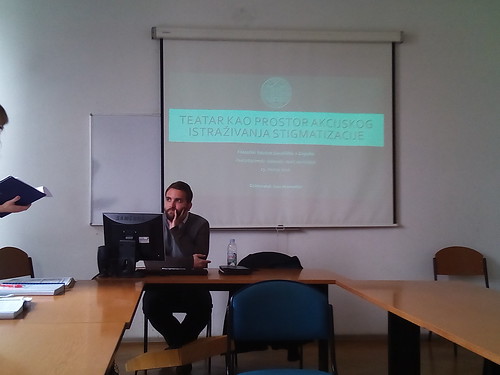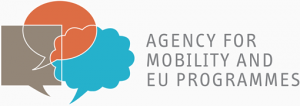This project has been funded with support from the European Commission.
This communication reflects the views only of the author, and the Commission cannot be held responsible for any use which may be made of the information contained therein.
Since the defence of Ivan Hromatko’s dissertation “Theatre as a space for action research on stigmatization” at the Postgraduate doctoral Studies of University of Zagreb’s Humanities and Social Studies Faculty – on 29 April 2016 – the drama-action model of research (according to which UPSET workshops are revolving) got an academic confirmation.
By defence it was established that the drama-action model enables working on tabu subjects, destigmatization and re-socialization through: realisation of non-routine interactions and awareness, critical thinking and overcoming of normative and value based restrictions of everyday life which perpetuate stigmatization.
represents an innovation which enables activities in three fields:
- SCIENCE AND RESEARCH
- Model is an innovation in Croatian (and world) sociological research tradition and it introduces theatre as an research instrument into the field of sociological research
- CIVIL SOCIETY
- Since all drama-action workshops end with a public performance, this model enables sending positive messages (activist, education) to the immediate and intermediate public (with video recordings)
- EDUCATION
- The model has proven to be applicable in non-formal education and in formal education as well – but for application in formal education a certain openness by the system is required (paradigm turn toward Edgar Morin’s principles for upbringing for the future alongside certain objective compromises and preparations (venues and time intervals of activities in formal education and adapted primarily for the needs of frontal lecturing and not for workshop type of activities)
In this message, we thank everyone who participated in this achievement (participants, lecturers, associates and volunteers and we announce further work on developing the model and bringing positive changes into lives of individuals and into communities in which we live and work.


